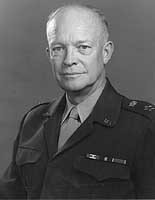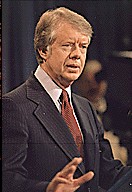April 5. In Philadelphia, businessman James Sabzali
is found guilty of violating the US embargo against Cuba.
May 13. From Havana's Center for Genetic Engineering and
Biotechnology, Jimmy Carter says:
"With some degree of reluctance I
would also like to comment on the allegation of bioterrorism. I do this because
these allegations were made maybe not coincidentally just before our visit to
Cuba. In preparation for this unprecedented visit, I requested, and we all
received, intense briefings from the State Department, the intelligence
agencies of my country, and high officials in the White House. One purpose of
this briefing was for them to share with us any concerns that my government had
about possible terrorist activities that were supported by Cuba. There were
absolutely no such allegations made or questions raised. I asked them
specifically on more than one occasion is there any evidence that Cuba has been
involved in sharing any information to any other country on Earth that could be
used for terrorist purposes. And the answer from our experts on intelligence
was 'no.'
I think it's very significant though that this allegation was
made, and I'm grateful for a chance to come here at the center of this effort
on behalf of Cuba."
June. Matt Welch writes in Foul Ball (Reason Online), "Even
though the [Cuban] people are generally smart and jaded enough to tune out the
government's propaganda, they don't have much of anything to replace it with,
except for the odd BBC broadcast-and contact with foreign tourists. Every
conversation with an American about the U.S. undermines Fidel Castro by
definition, because it surely contradicts the banal lies he and his media mouth
on a daily basis."
July 23. In Washington, the US House of Representatives
votes 262 to 167 to end the travel ban and allow the sale of American goods to
Cuba. 73 Republicans vote against the embargo.
July 28. From an editorial in the New York Daily News:
"…slowly but surely, the tide is turning in favor of lifting travel and
trade sanctions against Cuba. More and more Republicans are not willing to let
the larger interests of the U.S. and their own constituents be sacrificed to
the gods of electoral politics."As Rep. Jeff Flake, the Arizona Republican who
led the effort to repeal the travel ban, said: "This is all about freedom. Our
government shouldn't tell us where to travel and where not to travel."'
July 29. From an editorial in the Boston Herald:
"The
more travelers there are (to Cuba) the more the truth will spread, and that can
only help the transition of Cuba out of tyranny when the tyrant dies."
August 7. In Washington, House Majority Leader Dick
Armey (R-Texas) says the U.S. should open trade with Cuba.
August 7. From an editorial in the Boston Globe:
"As for
human rights, opening travel and trade to the island would improve the
monitoring of human rights abuses and expose more Cubans to American values.
Bush ought to put the interests of both Cubans and Americans before his
domestic political needs."
November 13. For the 11th straight year, the UN General
Assembly overwhelmingly approves a resolution asking the US to end the
40-plus-years embargo against Cuba. The vote is 173 in favor of the resolution
and 3 against (US, Israel, Marshall Islands), with no abstentions. European
nations expressed objection to the embargo, citing US penalties on countries
and companies doing business with Cuba as "extraterritorial," and saying that
the embargo is a bilateral issue between the US and Cuba and should not be
imposed on others.
According to an article in the Christian Science Monitor
(10/23/03) about 180,000 U.S. citizens visited Cuba in 2002.


